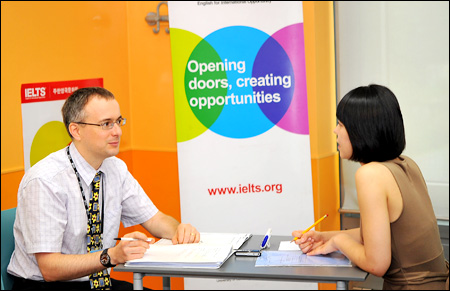IELTS Speaking Phase 2 Tips

In Phase 2 of the speaking test, you are asked to make a presentation on a topic. It will always be something personal, like talking about a holiday you went on or something you enjoy. This is often followed by series of questions that will ask you to express your opinion.
As you prepare for this portion of the exam keep in mind these things:
1. Be Relaxed: The fact of the matter is that you will speak with better fluency and accuracy if you are relaxed.
2. Be Out Spoken: This is your language assessment so give the examiner something to asses. Speak as much as possible and never simply give a 'yes' or 'no' answer. The examiner will not generally prompt you to speak so if you don't the interview will be over very quickly.
3. Be Realistic: Don't show off. Often candidates will try to show the examiner how well they can speak by trying to use sophisticated vobaculary and a difficult grammar. What they don't realize is that they have stepped over their capabilities and end up using both the grammar and the vocabulary wrongly. This will result in a lower score. So - go for normal and natural.
The Speaking Interview
The examiner will start phase/part two of the interview by saying something like:
Now I'm going to give you a topic and I'd like you to talk about it for one to two minutes. You’ll have one minute to think about what you’re going to say before you begin talking. You can make some notes if you wish. Here is a pencil and some paper.
They will then give you your topic card. You should read the card carefully so you completely understand the question and prepare answers to these basic thoughts:
- Who?
- What?
- Where?
- When?
- How?
- Why?
If you can answer each of these questions with details and cohesion you should easily fill up your 2 minutes.
Remember - it's important to give the examiner something to assess. Specifically they are looking for a wide range of grammar usage as well as a developed vocabulary. So if you start all your sentences the same way it will hurt your score because you are only showing a limited grammar range.
When telling events in past tense try using a variety of time elemetns: first, then, after that, and finally - to introduce your sequence of events. If you only use then, then, then, you are using a limited vocabulary and grammar which will cost you points.
Check out our next post which will include sample questions for Phase 2 of the speaking exam for the IELTS test.
Related Resources:
Comments
IELTS speaking: model interview









